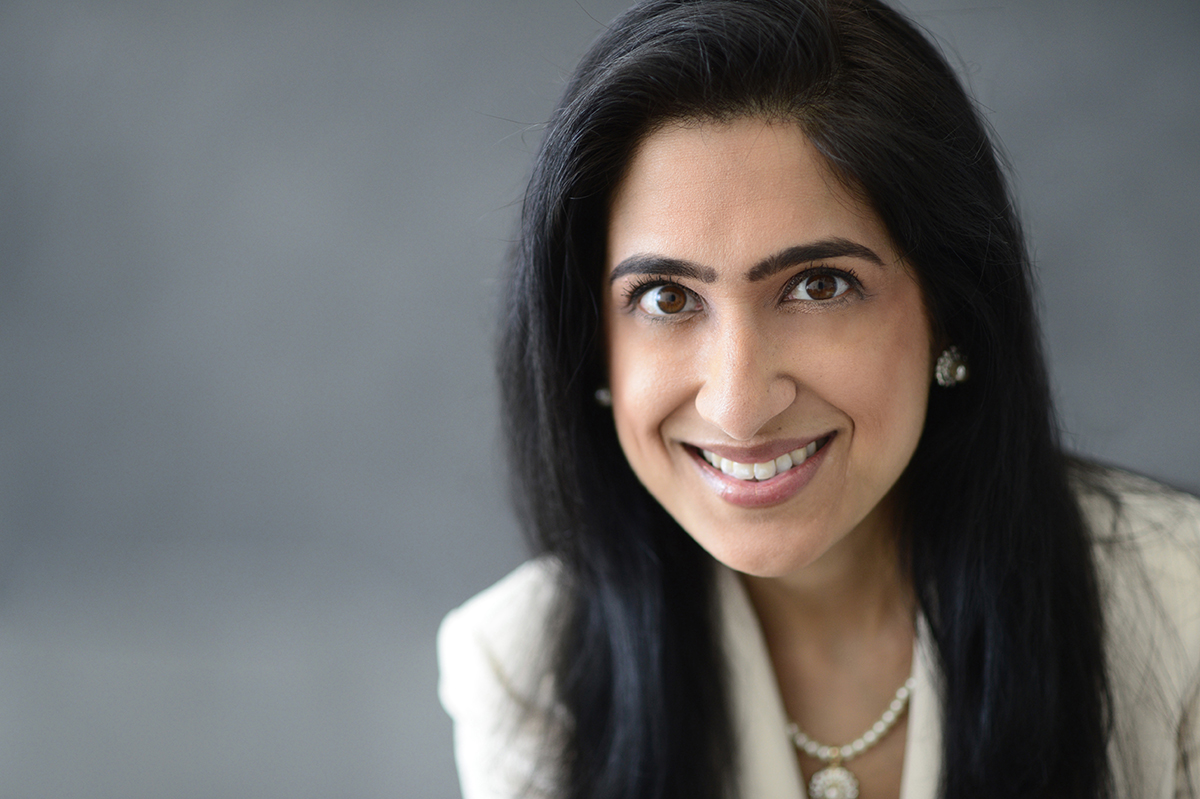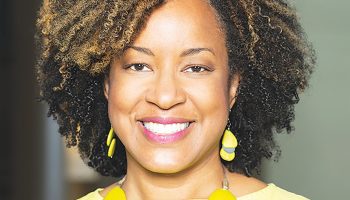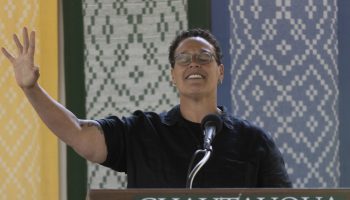Zahra Jamal fell in love with Chautauqua as a girl over a lemon poppy seed muffin and the inspiring speakers in the Interfaith Lecture Series.
Wednesday, many years later, Jamal is returning to Chautauqua Institution to stand on the other side of the podium to talk about how Muslims value food. Jamal, associate director at Rice University’s Boniuk Institute for Religious Tolerance, will speak on “Food for the Soul: A Muslim Perspective” at 2 p.m. Wednesday in the Hall of Philosophy.
“In Islam, food, like health, is a divine gift to be cared for, nurtured and shared for the betterment of society,” Jamal said.
As part of Week Nine’s interfaith theme, “Food and Faith,” Jamal will discuss five main topics in the relationship between Islam and food. The first is how food builds communities during the annual rituals of Nawruz, Ramadan and Hajj.
These food rituals were influential in Jamal’s youth, she said, reciting fond memories of waking up before dawn to pray and eat with her family before beginning the fast during Ramadan and breaking it after dusk with her community. When she went away to college, she celebrated Eid with friends with traditional foods like biryani and kheer.

However, Jamal said, some of her favorite childhood memories were the everyday family dinners. Related to this are two of Jamal’s other lecture topics: how breaking bread can help create dialogue, and how food symbolically and literally nourishes people. Part of this is eating mindfully, which Jamal said Muslim people take seriously.
“When partaking in a meal, most Muslims clean their hands, body and mind, as well as offer a prayer of gratitude for God’s bounty and blessings both before and after eating,” Jamal said.
During their family dinners, Jamal’s father also sparked her interest in studying Islam by regaling the family with narratives from Islamic history.
Jamal went on to study Middle Eastern and Islamic studies for her undergraduate degree. Then, as a graduate student at Harvard University, she focused on the anthropology of Muslim communities.
At Rice University, Jamal now educates students about religious tolerance and civic engagement in the Islamic world, on which she has advised the United Nations and the U.S. State Department.
Although developing Wednesday’s lecture pushed Jamal outside of her usual research area, she will incorporate her expertise by discussing how Muslim dynasties advanced agricultural production and examples of Muslim civil society organizations that are tackling the global hunger crisis.
Jamal said she is excited to return to Chautauqua to join the ranks of esteemed speakers who have lectured at the Hall of Philosophy. During her youth, she came to Chautauqua often with her family because her uncle, Habibullah Jamal, was instrumental in developing the original Interfaith Lecture Series.
Jamal will contribute an important perspective on food and faith during the week as an expert on Islam, which has many unique food rituals. These include eating dates to break the fast of Ramadan, as the Prophet Muhammad did, and eating Halal meat, which means the animal is sacrificed humanely. Both of these are deeply spiritual customs tied to the Quran.
“In my view, as a Muslim, symbolic and physical nourishment are deeply spiritual, environmental and moral acts that enable the subordination of the ego, the cultivation of communal life and identity, and the connection to creator and creation,” Jamal said.




